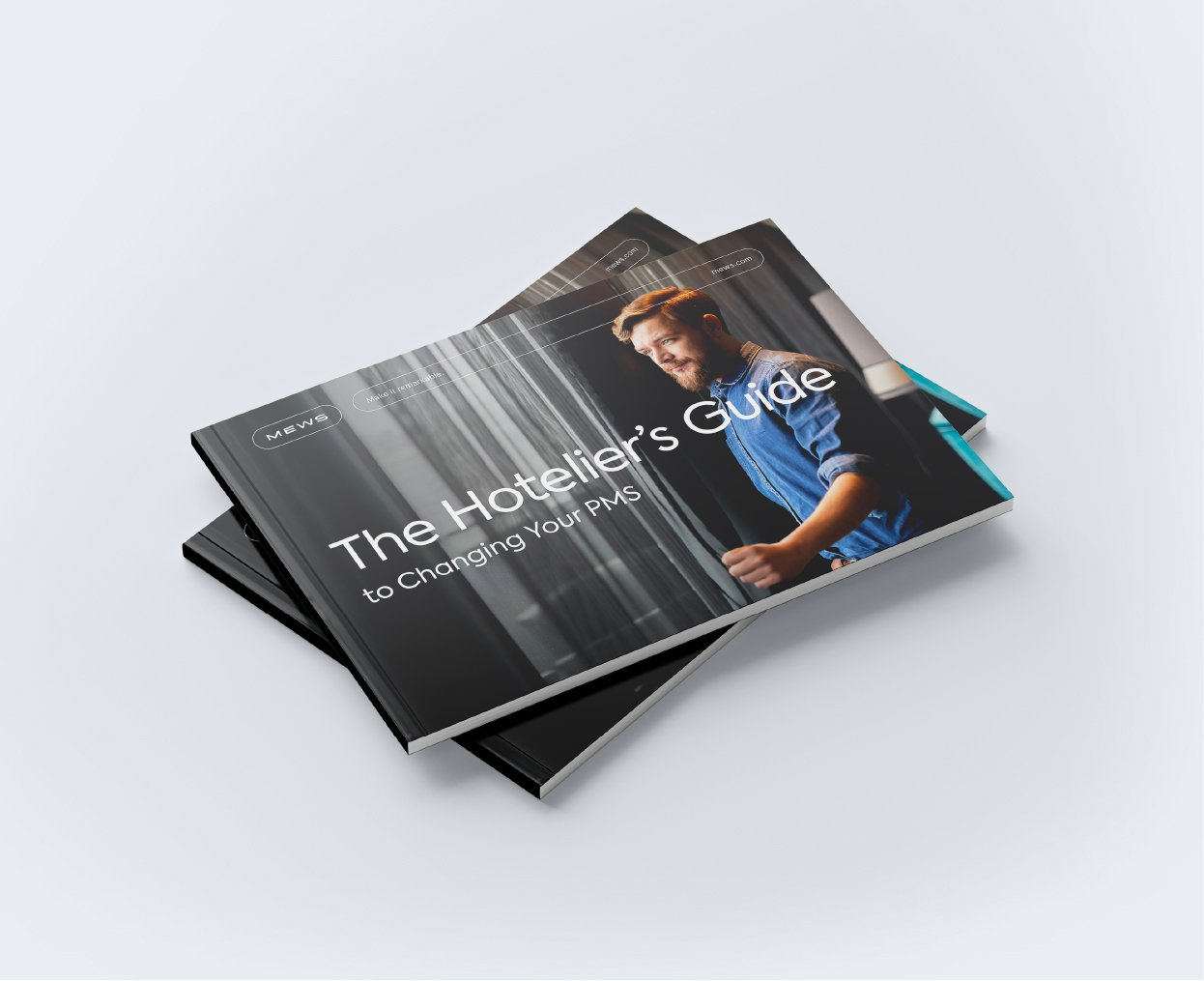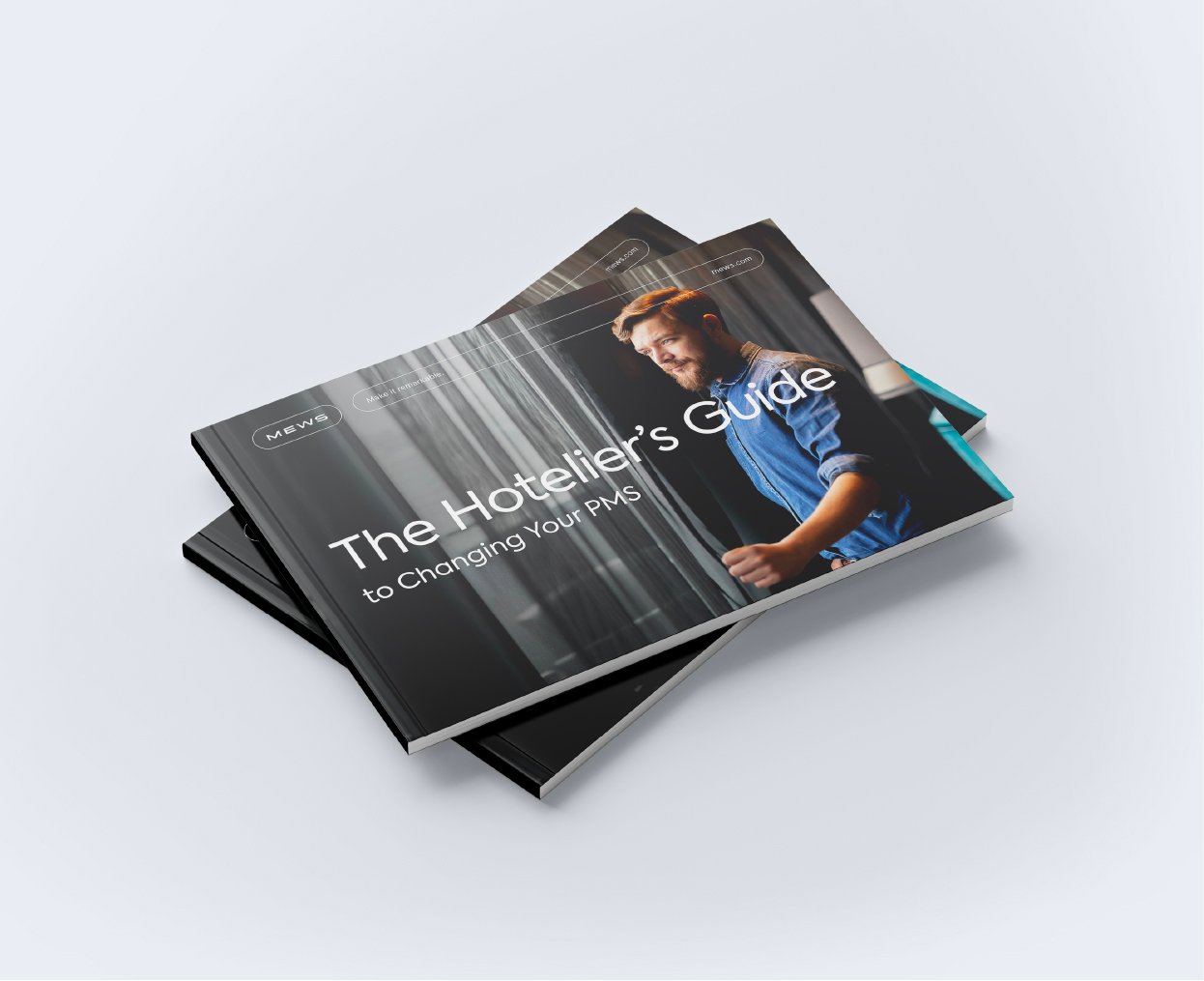As a hotelier, your property management system (PMS), channel manager, and customer relationship manager are likely three essential tools in your toolkit. But what exactly do a PMS and a channel manager do, and how do you choose the right one for your needs?
In this guide, we'll break down the key differences between a PMS and a channel manager, explain how to decide which is best for your hotel, and explore the functionalities of each. By the end, you'll have the insights you need to build a toolkit that streamlines operations, enhances profitability, and elevates the guest experience.
Table of contents
What is a PMS?
A PMS or property management system is a hospitality software used by hotels to manage operations, including (but not limited to) reservations, rate management, housekeeping, and daily front desk tasks like check-in and check-out. It helps enhance operational efficiency, boost guest satisfaction and help generate revenue.
Every PMS will have different features, but the idea is it acts as a central hub to manage everything you need to ensure that your hotel is working properly. Plus, it gives you tools to manage your revenue, optimize rates, digitalize things like check-in, upselling and key cutting, and organize your staff better through shift management and other communication tools.

Characteristics of a property management system
So, what exactly does a PMS do, and why do hoteliers need to carefully choose this software? Thanks to the following core functionalities, PMSs have become indispensable tools for modern hoteliers.
Reservation management
A PMS can be used to manage bookings from different sources, whether they be direct bookings or from other third parties. You can use it to handle group bookings, and room assignments based on availability and guest preferences.
You can also use the software to help with check-in and check-out, offering digital keyless entry, and helping you to track guest history, and preferences to improve guest satisfaction throughout their stay.
Revenue management
You can use your PMS to carry out revenue management and automate rate management based on historical data and customer preferences. Use your PMS to grow segments based on automation that adjusts pricing by attributes. This way you can implement dynamic product pricings, space-type pricing, prices per day, prices by age segment, and more.
Housekeeping management
Your PMS can also assist you with better managing housekeeping operations. Through internal communication on the platform, the front desk can alert housekeepers when guests have checked out and thereby track room status, helping to better align and monitor tasks for housekeeping staff.
Payment processing
Your PMS can also help you better manage payments through specialized terminals that allow you to collect payment at different points of sale, whether that be online through direct bookings, at your hotel restaurant, bar or pool, or at a self-check-in kiosk. The smoother the payment process is, the easier it will be to drive revenue across the whole guest journey.
Manage the guest experience
The guest experience can be enhanced with your PMS offering digitally forward services like a virtual concierge, online check-in, or even a check-in kiosk that allows guests to check themselves in and cut their own keys. Alternatively, digital keys can be made available that allow guests a full contactless experience from online booking through to entering their rooms. You can also use your PMS to promote direct bookings with a booking engine that features options for customization, as well as extra add-on options, that will help deliver exactly what guests want.
What is a channel manager?
A channel manager is software hotels use to connect their booking system with online travel agencies (OTAs) and other distribution channels, allowing them to manage their inventory, availability and rates in real time. It helps to streamline distribution and maximize revenue-generating opportunities.
What should a channel manager have?
It's important that a channel manager is able to handle all of your OTA listings, whether that be with Expedia, Booking.com or Hotels.com. This way you don't have to manage availability across your own direct booking sites and OTAs, running the risk of double bookings. Channel managers update inventory in real time, allowing for smooth distribution.
A channel manager should have integration capabilities, multi-channel connectivity, the possibility for automation, real-time synchronization for inventory and rate management, the ability for analytics and reporting, and the capabilities of promoting special deals.
Inventory and rate management
You should be able to update room availability and rates across all connected channels at the time of booking. This way you can avoid overbooking by ensuring inventory is up to date across channels. You should also be able to adjust rates to enable dynamic pricing, length-of-stay discounts, or any other special offers.
Possibility for integration
Your channel manager should be able to integrate and sync with your PMS, allowing you to centralize reservations and automate guest flows. It should also integrate with your hotel's direct booking to support upselling efforts and link up to your revenue management efforts.
Support multi-channel distribution
It should be able to support different channels including OTAs, meta-search engines, Global Distribution Systems and your own direct booking channels. By supporting multiple channels, you can ensure easy distribution across them all.
Analytics and reporting
Use your channel manager to track booking trends, occupancy levels and revenue. This way you can better forecast based on historical trends and market demand, while investing more in the top-performing channels.

Differences between a channel manager and a PMS
A channel manager and a PMS both contribute to a hotel's success, but in different ways. While a channel manager functions as a marketing tool helping your hotel to distribute rates and availability across distribution channels, a PMS is a broader tool that can be used for operations, channel management, and a wide range of other functions outlined above.
How to choose between a Channel Manager and a PMS?
It's less about choosing between a PMS and channel manager, and rather about choosing a PMS that incorporates a channel manager as part of its functionality. Some PMSs (like Mews) offer the ability to connect to a channel manager through an API, allowing you to link your software of choice to manage the different elements of your business.
Why do you need Mews PMS?
Mews PMS will do just this, connecting your channel manager of choice through an API, allowing you to automate processes, centralize your operations in one tool, and helping you to make data-driven decisions through reporting functions that will steer your profitability.
Mews enables you to better manage rates and reservations, whether they're for hotel rooms, parking, co-working spaces or anything else your property offers. Plus, an integrated POS with mobile, all-in-one payment terminals simplifies and elevates the F&B experience. With Mews, hotel management is faster, more streamlined and ultimately more profitable.
Conclusion
We've explored the key roles that PMS and channel managers play in driving your hotel's success and profitability. The ideal solution? A single PMS that seamlessly integrates channel management, bringing all your processes together into one streamlined system. It's the simplest way to save time, reduce complexity, and focus on delivering incredible guest experiences.
Download our guide The Hotelier’s Guide to Changing PMS


Author
Eva Lacalle
Eva has over a decade of international experience in marketing, communication, events and digital marketing. When she's not at work, she's probably surfing, dancing, or exploring the world.

The Hotelier’s Guide to Changing PMS
Download now
Hospitality hot takes straight to your inbox


.webp)